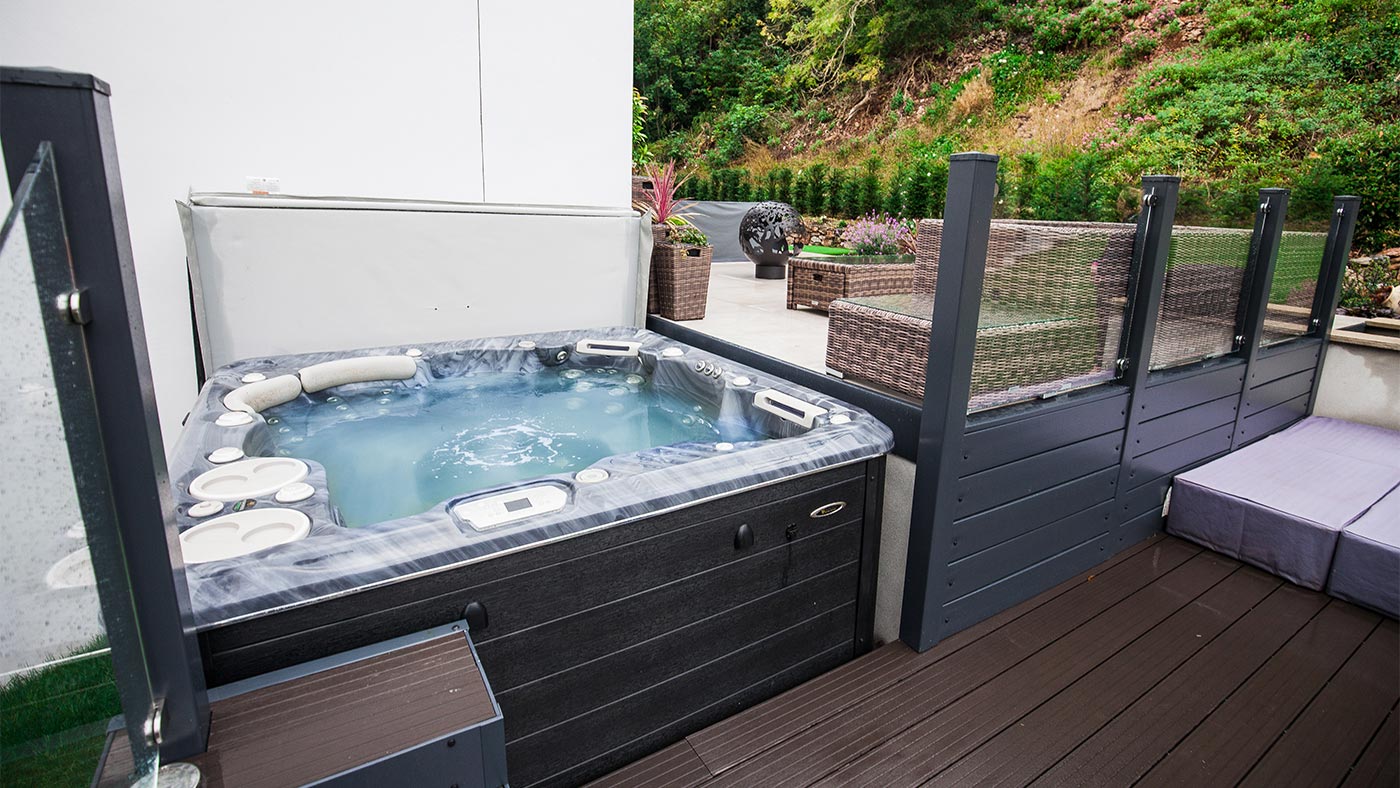Owning a hot tub in Canada can be a delightful experience, providing a relaxing retreat regardless of the season. However, the diverse and often harsh Canadian climate demands that hot tub owners take special measures to protect their investment. One of the most crucial accessories for any hot tub owner is a high-quality cover. This guide explores the various benefits of hot tub covers, the types available, and essential tips for choosing and maintaining the best cover for your hot tub in Covers Canada.
Key Benefits of Hot Tub Covers in Canada
Superior Energy Efficiency
One of the primary benefits of a hot tub cover is its ability to retain heat, significantly enhancing energy efficiency. In a country like Canada, where winter temperatures can plummet, maintaining a consistent water temperature without a cover can be challenging and costly. A well-insulated cover traps heat, reducing the amount of energy needed to keep the water warm. This not only ensures a comfortable soaking experience but also helps lower energy bills, making hot tub ownership more affordable.
Enhanced Cleanliness and Reduced Maintenance
Hot tub covers play a vital role in keeping your spa clean by preventing leaves, dirt, insects, and other debris from entering the water. This is particularly important during the fall and spring seasons when such contaminants are more prevalent. By keeping debris out, a cover reduces the frequency of cleaning and maintenance, allowing you more time to enjoy your hot tub. Additionally, a cleaner hot tub requires fewer chemicals to maintain water balance, leading to further cost savings and a more pleasant soaking experience.
Increased Safety
Safety is a paramount concern for hot tub owners, especially those with young children or pets. An uncovered hot tub can pose a significant risk of accidental drowning. A sturdy, lockable cover provides an essential safety barrier, preventing unsupervised access and ensuring your hot tub remains a safe environment. In the icy conditions common in many parts of Canada, a secure cover can also help prevent slips and falls around the hot tub area.
Protection from the Elements
Canadian weather can be unpredictable and often severe, with intense UV rays in summer and heavy snow and ice in winter. A durable hot tub cover protects your spa from these elements, helping to extend its lifespan and maintain its appearance. During the winter months, a cover can prevent snow and ice from accumulating in the hot tub, which can cause structural damage and increase maintenance needs.
Chemical Efficiency
Maintaining the chemical balance of your hot tub water is crucial for both the longevity of your spa and the comfort of its users. A cover helps to maintain this balance by keeping out contaminants, reducing the need for additional sanitizing chemicals. This results in cost savings and ensures that the water is always safe and pleasant for soaking.
Types of Hot Tub Covers
Standard Foam Covers
Standard foam covers are the most common type, known for their good insulation and durability. They consist of foam cores encased in a vinyl shell, providing excellent protection against heat loss. These covers come in various thicknesses and densities, allowing you to choose the level of insulation that best suits your climate and usage patterns. For Canadian winters, a thicker cover with high-density foam is recommended for optimal heat retention.
Rolling Covers
Rolling covers are designed for ease of use, making them ideal for those who use their hot tub frequently. They can be quickly rolled on and off the hot tub, offering adequate protection against debris and weather elements. However, they may not provide as much insulation as foam covers and might not be the best choice for areas with heavy snowfall.
Hard Covers
Hard covers are made from rigid materials like aluminum or hard plastic, offering excellent protection against debris and harsh weather conditions. They are highly durable and can withstand heavy snow and strong winds, making them suitable for regions with extreme weather. Hard covers provide robust protection and are a good investment for long-term use.
Thermal Covers
Thermal covers are lightweight and designed specifically for heat retention. They are typically made from a thin, insulated material that floats on the surface of the water. While not as durable as other types, thermal covers are excellent for keeping the water warm and reducing energy costs. They can be used in conjunction with another cover for added insulation during the colder months.
Choosing the Best Hot Tub Cover for Canadian Conditions
Material and Durability
Select a cover made from high-quality, durable materials that can withstand Canadian weather conditions. Marine-grade vinyl is a popular choice due to its resistance to UV rays and moisture. Look for covers with reinforced stitching and strong seams to handle the weight of snow and ice.
Insulation
The level of insulation is crucial for energy efficiency. Look for covers with high-density foam cores and sufficient thickness, typically between 4 to 6 inches, to ensure maximum heat retention. Multiple layers of insulation or additional thermal barriers can be beneficial for extreme cold.
Fit
A well-fitting cover is essential for optimal performance. Ensure the cover fits your hot tub snugly, leaving no gaps for heat to escape or debris to enter. Custom-fit covers are available for most hot tub models and provide the best seal. Accurate measurements are crucial to ensure a tight fit, especially in regions with heavy snowfall.
Safety Features
If safety is a concern, look for covers with built-in locking mechanisms or securing straps. These features ensure that the cover stays in place and cannot be easily removed by children or pets. Locks can also provide additional security against unauthorized use.
Ease of Use
Consider how easy the cover is to remove and replace. If you use your hot tub frequently, a lightweight or rolling cover may be more convenient. For larger hot tubs, a cover lifter can make handling the cover easier, especially in winter when ice and snow add extra weight.
Maintaining Your Hot Tub Cover in Canada
Cleaning
Clean your cover regularly to prevent the buildup of dirt, mold, and mildew. Use a mild soap and water solution to clean the vinyl exterior, avoiding harsh chemicals that can damage the material. Rinse thoroughly and allow the cover to dry completely before placing it back on the hot tub. In winter, promptly remove snow and ice buildup to prevent damage.
Conditioning
Apply a vinyl conditioner periodically to keep the material supple and prevent cracking. This also provides an additional layer of protection against UV rays. Conditioning is particularly important in regions with intense sun exposure during the summer months.
Inspection
Regularly inspect your cover for signs of wear and tear. Check for any rips, tears, or sagging, and address issues promptly to prevent further damage. If the foam core becomes waterlogged, it may need replacement. In areas with heavy snowfall, check the cover’s structural integrity to ensure it can handle the additional weight.
Storage
If storing your cover for an extended period, ensure it is clean and dry before storage in a cool, dry place. Avoid folding the cover to prevent creases and damage to the foam core. Use a cover bag or protective case to prevent dust and debris from accumulating during storage.
Conclusion
Hot tub covers are an indispensable accessory for any hot tub owner in Canada. They offer a multitude of benefits, including improved energy efficiency, enhanced cleanliness, increased safety, and robust protection from the elements. By investing in a high-quality cover and maintaining it properly, you can ensure the longevity and enjoyment of your spa. Whether you opt for a standard foam cover, rolling cover, hard cover, or thermal cover, selecting the right one for your specific needs and climate conditions is crucial. With the right cover, you can enjoy the peace of mind that comes with knowing your hot tub is well-protected and always ready for a relaxing soak, regardless of the season.



